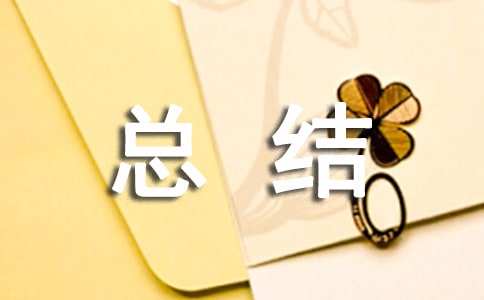下面是小编为大家整理的初中英语笔记(学霸整理)(范文推荐),供大家参考。

初中英语笔记大全(
学霸整理 )
This is the key to the door .这是开门的钥匙。
电话号码电话号码at
. sth. sbcall
call sb. = phone sb. = ring sb. up please give me a call .请打电话给我 family 指家庭时是单数,谓语动词用“is”,family 指家人时是复数,谓语动词用“are”。
of 表示无生命物体的所有格,s 表示有生命物体的所有格。有生命物体的所有格也可以用 of,但有生命物体后要加“s”。
以副词 there 或 here 开头的句子常要倒装,以示强调。
What’s your name, please? = Could you tell me your name, please? = May I have your name, please? Nice to meet you. = Glad to meet you. = Pleased to meet you. 写启示的方法:
1.启示的主题;2.描述细节;3.留下联系方式。
表示惊讶、忧伤、微怒、失望等,可以用 dear 作感叹词。
名词如果有数量词修饰它,使用谓语动词适应看他的数量词,如:
get to somewhere (get home 除外)到达……
肯定:Let+宾语(人称代词的宾格或名词)+ V 原型+…… 否定:Don’t let +宾语+V 原型+……/Let + 宾语 + not + V 原型+…… have 表示“有”时才可以用来提问或写成否定“haven’t”。
联系动词 be 动词 + adj.作表语 感官动词 look 看 sound 听 smell 闻 taste 尝 fell 触 反身代词:
myself (我自己)
yourself (你自己)
himself (他自己)
herself (她自己)
itself (它自己)
ourselves(我们自己)
yourselves(你们自己)
themselves(他们自己)
How much + be + 商品?(答:It’s/They’re……)
= What is the price of……?(答:It ’s……)
cent 美分 One dollar =100 cents keys
of
sets
two
are
herekeys
of
set
a
is
here) 无生命物体的“有” ( is
there) 有生命物体的“有” ( have有 ?
you
will 问:
) 听话的人 include 不 ( us
Let?
we shall 问:
) 说话的人和听话的人 (include s Let"
other(两者中的另一个) another(三者中的另一个)
越接近物品本身性质的形容词越靠近物品,如:big blue hat 帮助某人做某事 help sb. (to) do sth. help sb. with sth. with the help (n.) of sb. e.g. He studies math well, with the help of teacher. 一般将来时的一般形式:主语+will+动词原形+…… Can I help you? = What can I do for you? = (Is there) anything I can do for you?
welcome a.受欢迎的 v.欢迎 n.欢迎 get a warm welcome 得到热烈欢迎 be 动词不加动词原形 “hundred,thousand”与基数词一起表示具体数字时不加“s”。
hundreds of 上百 thousands of 上千 buy sth. for sb. = buy sb.(间接宾语)
sth.(直接宾语)
为某人买某物 any body 在肯定句中表示任何人,在否定句和疑问句中不是。
for 表示动词的对象或接受者,表示用途,表示目的,表示等价交换或标注价格,表示时间持续多久,表示距离,表示理由或原因。
each 强调两者或两者以上的每一个,强调个体 +第三人称单数 every 强调三者或三者以上的每一个,强调整体 There are many trees on each side of the road There are many trees on both sides of the road the price is low(high) 价格低(高)
也 also 放在 be 动词、情态动词、助动词之后,实意动词之前 either 放在句末(疑问句、否定句) too 放在句末(肯定句) on a cold morning 在一个寒冷的早晨
when……? 答不用具体时间 what time……? 答要用具体时间
比赛 contest 和智力或知识有关的竞赛 game match 有计划预先安排好的比赛 持续一段时间的节日一般用“festival”.
a kind of 一种 many kind of 许多种 all kinds of 各种各样 kind of ……有几分……如:The elephants are kind of cute. 含有 think 的宾语从句中如果从句中有否定,要否定前移,如:She doesn’t think they are boring.(她
认为他们不无聊) 问:How are you? 答:I’m fine. (我很好。)/Just so so.(一般般。) 表示时间、价格、距离的名词作主语,谓语动词用单数。如:Two dollars is enough(足够)。
怎么判断双音节单词中第一个音节是开音节还是闭音节:双音节单词中的两个元音是两个音节的中心,元音是由元音字母或元音字母组合发出的音,因此,首先找到单词中的两个元音字母或元音字母组合,两个中心就清楚了。两个中心之间的辅音字母(不是字母组合)则分别划归两个音节,第一个音节即为闭音节,如果两个中心之间的辅音字母为双写字母(包括“r”),分别划归前后,第一个音节按闭音节读音。如:
paper /’peipə/ (pa 为开音节) member /’membə/ (mem 为闭音节) happy /’hæpi/ (hap 为闭音节) sorry /’sɔri/ (sor 为闭音节) certainly /’sə:tnil/ I am sorry. I can’t go with you. (对不起。我不能和你一起去。)
Thanks. / Thank you. / Thank you very much. / Thank a lot. / Many thanks. You are welcome. / That’s OK. / That’s all right. It’s my pleasure. / With pleasure. (这是我的荣幸。)
make friend with sb. (和……交朋友)
Thanks for + n. / v.ing = Thanks sb. for + n. / v.ing below 在……下方(非正下方)
反义词:above 在……上面(非正上方,没有接触面)
under 在……下面(正下方)
反义词:on(有接触面),over(没有接触面)在……上面(正上方)
keep + sth. + adj. 使某物保持某状态。
keep + adj. 保持某状态。
表示请求、建议、希望得到对方肯定回答的疑问句用“some”。
问:Let…… 答:OK. / All right. / That’s a good idea. / That sounds good. / Sorry. sport 用来修饰名词要变为 sports。
play + the + 乐器 Erhu 除外 be 动词后叫表语,修饰名词叫定语,修饰动词叫状语,前后两词对等叫同位语。
人民币和日元变复数不变,其他要。
be good with sb. = get on well with sb. 与某人相处的很好 问:How often does Rick run on weekend? 答:Rick usually runs on weekend. always(总是) usually(通常) often(经常)
sometime(有时)
seldom(很少)
never(从不)
频度副词放在 be 动词或助动词之后,实意动词或行为动词之前。
感叹句:
What + (a/an) + adj. + n. + (主) + (谓)
!
如:What beautiful flowers they are! How + adj. /adv. + (主) + (谓)
!
如:How beautiful the flowers are! Can you think what his job is? 含有宾语从句的复合句,宾语从句的从句必须是陈述句。
Start to do sth. 开始做某事 be famous for…… 因……出名
忙于某事 be busy doing sth. be busy with sth.
对某人某事严格 be strict with sb. be strict in sth. / doing sth.
for + 时间段……做某事持续多久 问:How long do you have volleyball? 答:I have volleyball for two hours. ask sb. some questions. 问某人一些问题 ask sb. to do sth. 叫某人做某事 no =not any because 不和 so 同时使用,although(尽管)不和 but 同时使用。
little 修饰不可数名词 几乎没有(否定) a little 有一些(肯定) few 修饰可数名词 几乎没有(否定) a few 有一些(肯定) either:两者中的任何一个都行。
neither:两者中的任何一个都不。
用“may”提问的句子回答用 can/can ‘ t 或 must / mustn’ t;用“can”提问的句子回答用 can/can’t;用“must”提问的句子回答用 need/needn’t. 如:1. May I park my car here?
Yes, you can / must. / No, you can’t / mustn’t.
2. Can I watch TV?
Yes, you can. / No, you can’t.
3. Must I clean the classroom this morning?
Yes, you need. / No, you needn’t.
be afraid of doing sth. / be afraid of sth. 害怕做某事/某物 be fond of = like make a continuation to sth. 对……有贡献 do well in = be good at 擅长…… 比较级 + and + 比较级
越来越…… give back = return
归还 法国人单数:Frenchman/Frenchwoman 英国人单数:Englishman/Englishwoman Chinese 和 Japanese 单复数同形 in the world 在世界上 all over the world / around the world / the whole word 全世界 in the school 在学校里
in school 在学校学习 outside 在……外面 outside the gate to the park 在公园门外 turning 转角 go down + …… 沿着 …… 路走
go straight down + …… 沿着 …… 路直走 enjoy doing sth. 喜欢做某事 enjoy oneself = have a good time = have fun take a walk = go for a walk = have a walk the beginning of ……的开始 at the beginning of 强调在……开始的那一刻 in the beginning 起初,一开始 from the beginning 开始时 from beginning to end 从开始到结束 visit + 地点、参观某地 a visit to + 地点、参观某地 have fun doing sth. 做……很开心 地点 + is a great place to do sth. ……是一个做……的地方 be busy with sth. 忙于某事 the way to ……去……的路 on the way to + 地点 在去……的路上 on one’s way to + 地点 某人在去……的路上 on my way to home 在我回家的路上
主语 + hope(that) + 从句 主语 + hope + to do sth. live on ……靠……为生
pay 金钱 to sb. for sth.
为了某物付钱给某人 pay 金钱 to sb. = pay sb. 金钱 pay sb. 付钱给某人 between 两者之间 among 三者或三者以上之间
把某物递给某人sth.
sb.
passsb.
to
sth.
pass 小地方 at大地方 inarriveschool
reachschool
to
getschool
at
arrive到达学校 主语为人主语为物(强调金钱)时间、金钱 主语为人时间、金钱做某事要花某人多少 时间、金钱 主语为物花费payyuan.
3 me
costs book
This coststh.
doing
sth./(in) on
spend spend sth.
do . to
sb.
It takestake触面 指从上空穿过、没有接指从内部穿过面 指在表面穿过、有接触overthroughacross
Why not do sth. ? 表建议:为什么不做……呢? Why don’t you do sth. ? 表疑问:你为什么不要……?
如:People like this kind of animals, because they’re kind of cute. in the south of 在……南部 asleep 睡着的 adj.
fall asleep 入睡
be asleep 正睡着 be friendly to sb. 对某人友好 don’t forget to do sth. 不要忘记做某事 tell sb. to do sth. 叫某人去做某事 tell sb. not to do sth. 叫某人不去做某事
介词 + doing sth. would like to do sth. 想要做某事 Which place do you live in = Where do you live ? Isn’t he cute ? 否定疑问句 Sam wants to play basketball, doesn’t he ? 翻译疑问句 Why not do sth. ? = Why don’t you do sth. ? practice doing sth. 练习做某事 use sth. to do sth. 比较级中的代词用 that , 如:The map of Beijing is better than that of Tianjin. said to oneself 自言自语 be careful not to do sth. 小心别做某事 do one’s best 尽某人的全力
be satisfied with…… 对……满意 be full of 满是……
条件状语从句:主语为将来时,从句为一般现在时。如:We’ll have a sports meeting if it doesn’t rain tomorrow. 代词 名词短语 名词句子/ / becausebecauseillness.
the of
because
school
to go t didn"
Iill.
was I because
school
to go t didn"
I,,如. nof
kinds
allof
kinds many of
kind
aadj.
of
kind 停下正在做的是事 停下正在做的,去做某 sth.
doing
stop sth.
do
to stop 看不出原材料的看得出原材料的制作的 由 from
make
be of
made
be在外部的前面在内部的前面 of front in
of front
in the
It’s (形式主语) + adj. + (for sb.)
+ to do sth.(主语) 做某事怎么样。
如:It’s important for him to play the piano . 弹钢琴对他很重要。
It’s + adj. + of sb. to do sth. (adj.应为 sb.的本身性质)
如:It’s kind of you to help me. 你帮助了我,你真好。
go across the bridge 过桥 in + 时间段(将来时)多久后
What does she do ? = What’s she? = What’s her job?
如:I hope I can visit Hong Kong sometime.
talk to / with sb. 与某人交谈
be out 外出
waitress 女服务员
be late for…… 做……迟到了
learn by oneself = teach oneself 自学 (放在时间后)(放在时间前)之后,多久之后 在later after (CN)
jobUN) work (一些时间几次间 某时,某个不确定的时频度副词;有时
time some
times some sometime sometimes从某人那里得到某物间接宾语)
直接宾语, 给某人某物(. sb
from . sth get . sb . sthsb.
to . sth
give. sth . sb
give穿上穿的状态on put wear 脱离危险处于危险中danger
of out
bedanger in
be叫某人做某事问某人某事sth.
do
to . sb ask . sth . sb ask sth. work with
sb. work with 工作与某物有关与某人工作花需要被浇水...
推荐访问:初中英语 整理 笔记 初中英语笔记(学霸整理) 学霸整理的初中英语笔记



